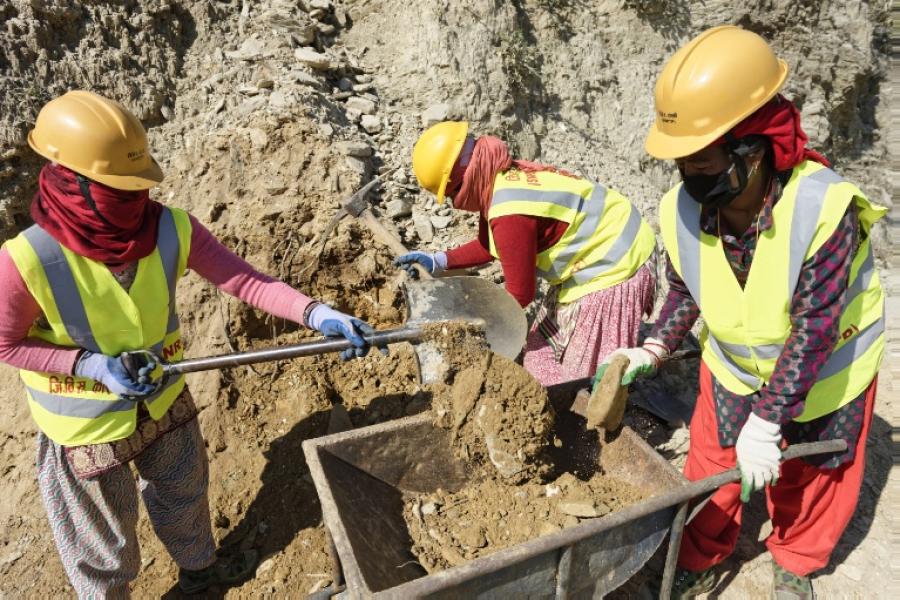OP-ED: Workers must be protected with a safe and healthy work environment

COVID-19 has reinforced the need for resilient national occupational safety and health systems to be in place.
COVID-19 has reinforced the need for resilient national occupational safety and health systems to be in place. To mark World Day for Safety and Health at Work 2021, Dr Lo Ying-Ru Jacqueline, WHO Representative to Malaysia, Brunei Darussalam and Singapore and Chihoko Asada-Miyakawa, ILO’s Assistant Director-General and Regional Director for Asia and the Pacific explain why it is important that we ensure healthy and safe work environment, particularly during COVID-19.
With almost 150 million cases globally, the COVID-19 pandemic has had an immeasurable impact on our world, resulting in far-reaching health, social and economic consequences, disrupting the lives and livelihoods of people all over the world. COVID-19 has disclosed many vulnerabilities. It had an especially profound impact on the world of work with high infection rates in some settings leading to closure of manufacturing industry, construction sites and entire service industries. Migrant workers, who make significant contributions to economies and many of whom are in the front lines, have been disproportionally affected by COVID-19. These changes underscore the importance of Occupational Safety and Health (OSH) and in particular, the need for countries to invest in and strengthen OSH systems in order to respond to COVID-19 and to anticipate and prepare for future crises.
Certain workplaces have been particularly affected, such as the 136 million health and social workers who are at serious risk of acquiring COVID-19 during the course of work. Healthcare workers and other medical front liners are at clear risk due to their direct exposure to COVID-19 patients and can be protected by strict adherence to established infection prevention and control measures.
But workers in particular sectors face the risk of infection, such as workplace environments characterized by the ‘3C’ conditions: crowded places, close contact settings and confined and enclosed spaces. In Malaysia, for example, high COVID-19 case burdens have been linked to workplace settings and clusters associated with the manufacturing and construction sectors. Factors linked to the emergence of workplace clusters include accommodation standards and living and working environments.

This World Day for Safety and Health at Work focuses on strengthening national OSH systems to build resilience in the face of COVID-19 pandemic as well as for future crises. ILO and WHO have joined forces to support governments in achieving this goal. The protection of workers against sickness, disease and injury related to their work environment has been a central issue for ILO since its establishment and today, the principles contained in occupational safety and health standards have shown to be more relevant than ever.
In Southeast Asia, the COVID-19 pandemic has led to many countries taking steps to strengthen their national OSH system. In Malaysia, the Ministry of International Trade and Industry recently launched the Safe@Work initiative, a programme aimed at providing a safe working and living environment for workers while reducing the spread of COVID-19 in the workplace. Local initiatives such as the Prevention of Outbreak at Ignition Site (POIS) in Selangor are being pioneered to prevent workplace-linked transmission of COVID-19. Additionally, in order to combat COVID-19 transmission in worker’s accommodations, the Worker’s Minimum Standards of Housing and Amenities Act 1990 has been amended to enforce new minimum housing standards for worker accommodations. Authorities have also recently announced that registered refugees and migrant workers residing in Malaysia will be eligible for COVID-19 vaccination under Phase 3 of the National COVID-19 Immunisation Programme.
Amongst the many lessons learned from this crisis is the need for countries to have a sound OSH system in place - a system which can build capacity to face future emergencies and protect workers’ safety and health, while supporting the survival and business continuity of enterprises.
The action of the actors in the world of work, and particularly in the field of OSH, has been crucial in the emergency response for protecting workers including those who support the public health systems. Special attention should be paid to ensuring that policies and strategies do not discriminate against any workers and that they consider the needs of those in vulnerable situations including young, women, disabled and migrant workers, as well as self-employed and informal economy workers.
The COVID-19 pandemic has demonstrated the importance of social dialogue between governments, employers’ and workers’ organizations not only in responding to crises but also in promoting good OSH conditions. A climate of trust, built through social dialogue, is essential for the effective implementation of measures to address emergencies such as COVID-19, which require swift and effective action. Strengthened respect for, and reliance upon, mechanisms for social dialogue create a strong foundation for building resilience and encouraging commitment from employers and workers to the necessary policy and practical measures.
Across sectors, special attention should be given to putting in place or reinforcing training and capacity building, as well as risk assessment and risk control measures to protect our workforces. These efforts go hand in hand with continued adherence to protective public health and social measures and national or local standard operating procedures (SOPs) and guidance to prevent the spread of COVID-19.
COVID-19 has undoubtedly been one of the gravest Occupational Safety and Health challenges the world has ever faced. Through the concerted action and commitment of all stakeholders let us together forge the strong and effective national OSH systems we need to safeguard the life and health of every worker for years to come.



